► New all-electric Mokka tested
► PSA platform and e-powertrain
► Eye-popping design moves the game on
Not content with just offering combustion engine variants, Vauxhall has released the electric Mokka e version, too.
Still just as stark to look at and with PSA electric tech underneath, it’s already off to a decent start. As for the combustion engine variant, you can read about that one here.
This doesn’t look like a Mokka…
Right? But we promise it is. What a design leap ahead of the Mokka’s desperately dull predecessor.
The Mokka is the first car under the Opel/Vauxhall banner to debut a new design language spearheaded by Mark Adams and his team, with the new ‘Vizor’ nose being the starkest visual differentiator. You can spec two-tone colours, with the roof and bonnet available in black and a colour called Mamba Green is available, too – Vauxhall is clearly giving a quiet nod to the Opel Manta GTE here.
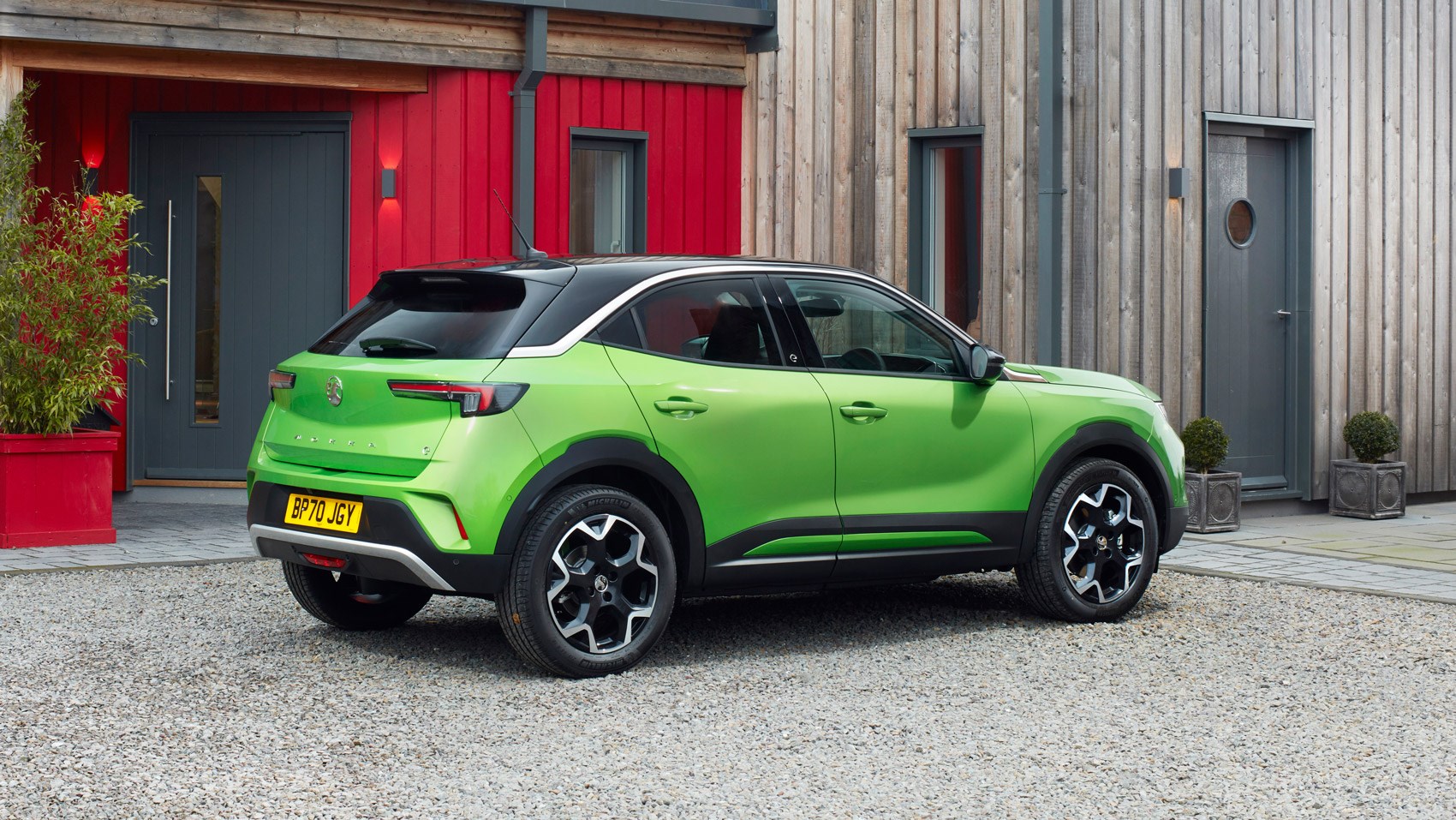
Add that to many more angular lines, sharp creases and a floating roofline that’s been par for the course for modern Vauxhalls for years and it all sums up to bringing the new Mokka crossover out of the bland crossover no man’s land.
Inside, it’s much more sensible than its Peugeot cousin, but still a big step forward. Digital instruments – as part of Vauxhall’s new ‘Pure Panel’ nod clean design and some scope for a little colourful personalisation are all on offer here. There’s good adjustment in the seat – though the digital instruments might impede where is best place to put the steering wheel so you see all of the information – and, if you go for a higher trim, the seats have plenty of bolstering to keep you snug.
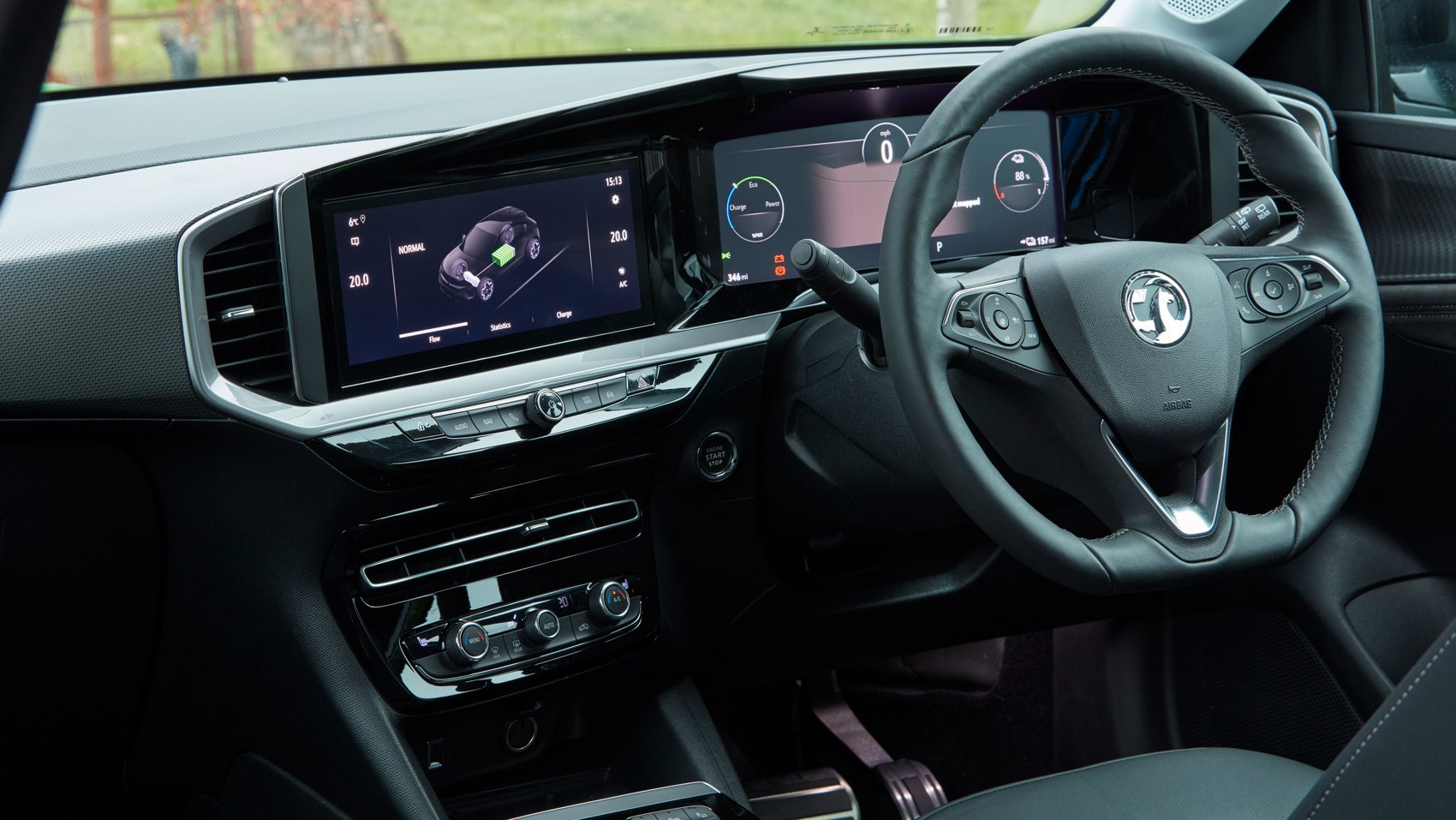
However, the rear seats are best placed for kids only – lanky adults will be jabbing their knees into the back of the seat even if they have plenty of headroom, and the 350-litre boot is around 100 litres smaller than a Ford Puma or Nissan Juke.
Any electric-specific details?
Vauxhall says the Mokka e can support up to 100kW charging capacity, claiming a near empty to 80 per cent charge is done when zapping in energy at that highest capacity. A 50kW rapid charge to a similar state takes a claimed 45 minutes, a 22kW one will take around five hours and a 7kW one is done in around seven and a half hours. Vauxhall claims up to 201 miles of range; during our test we averaged about 3.4 miles per kWh.
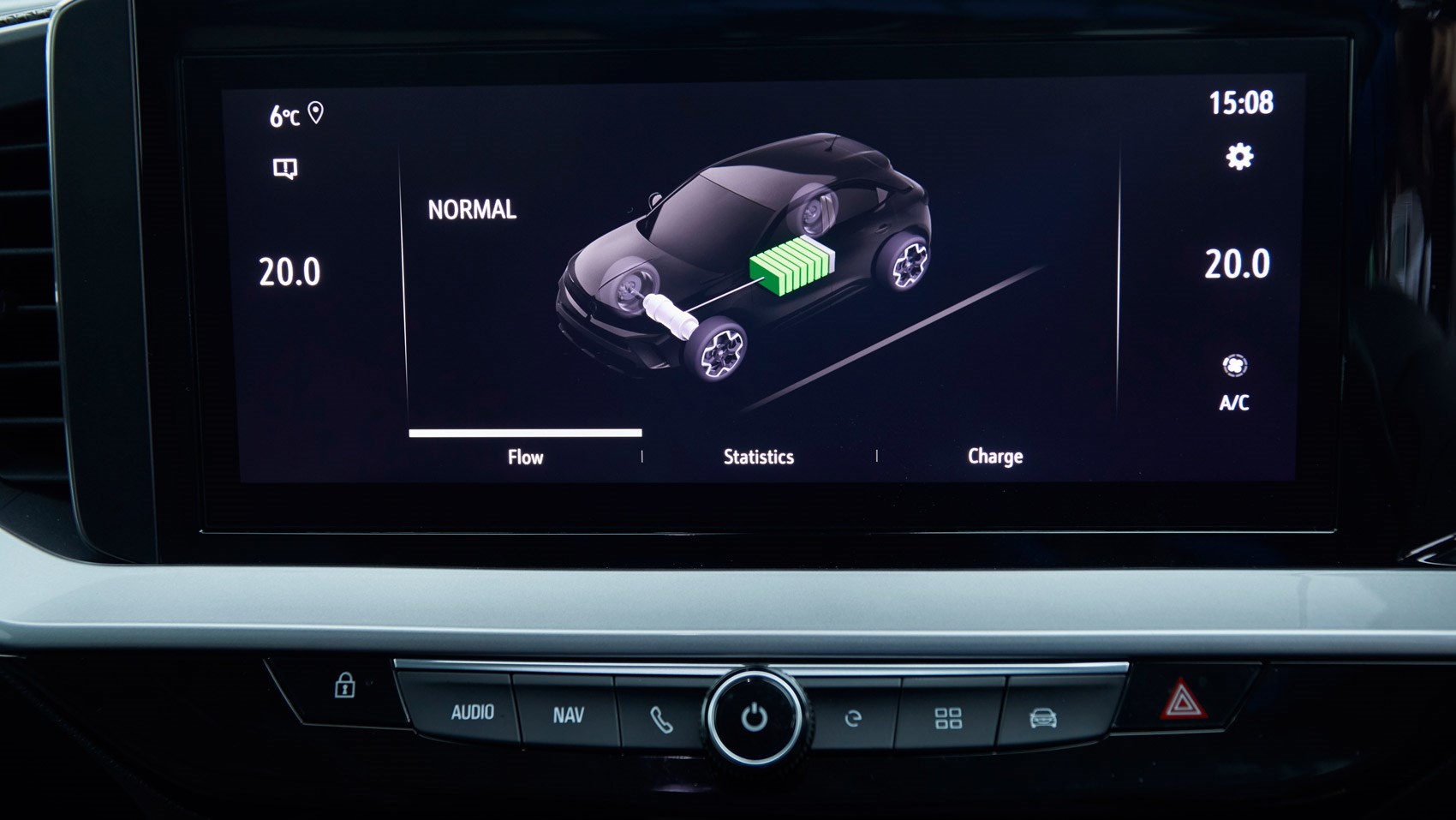
Bespoke Mokka e details are few and far between – as Vauxhall treads the same path as Peugeot in terms of making an electrified powertrain seem normal – so all you’ll notice is a power meter instead of a rev counter on the digital dials, a ‘B’ button next to the shifter for additional brake regeneration and an ‘e’ button underneath the central touchscreen to see energy flow and control when the car charges. Pressing said ‘B’ on the shifter allows harsher, if not quite one-pedal, driving – a boon for driving around town but merely par for the course in terms of EVs right now.
How does the new electric Mokka drive, then?
To say ‘just like an e-2008’ wouldn’t be telling the entire story. Let’s start with the electric powertrain: Stellantis’ (although technically Groupe PSA’s) platform houses a 50kWh battery, with a single 134bhp/192lb ft synchronous electric motor driving the front wheels.
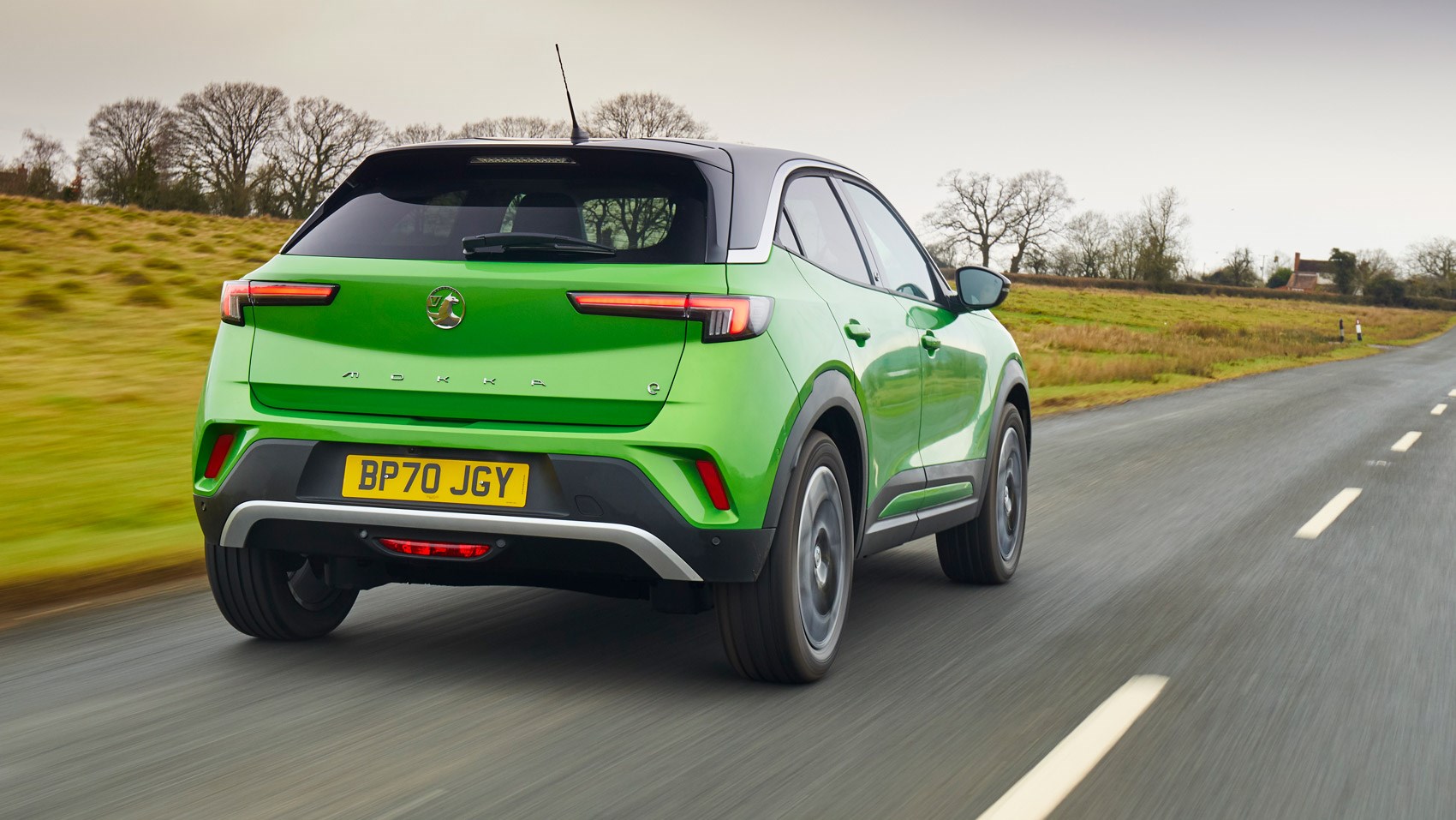
All of that is familiar, with a smooth (if not Ludicrous) surge of torque when you hoof it, gentle regeneration when coasting and a feint whine from the electric motor to go along with your progress. Vauxhall has tweaked how much power is outputted by the motor via the drive modes: in Eco, the throttle mapping is much softer and the motor generates just 80bhp and 133lb ft; Normal ups that to 107bhp and 162lb ft; prodding Sport unleashes all of the shove via a sharper throttle.
As for handling, I’d argue the Mokka e is slightly more comfortable than a combustion engine one – most likely due to the BEV powertrain’s additional weight. It’s impressively well damped and simply not as jittery as our tests with an e-2008 (or even a Puma or Nissan Juke, for that matter), compressing potholes in the road into feeling half their size when driving over them and, given the lack of engine noise, it’s a remarkably hushed experience at the wheel.
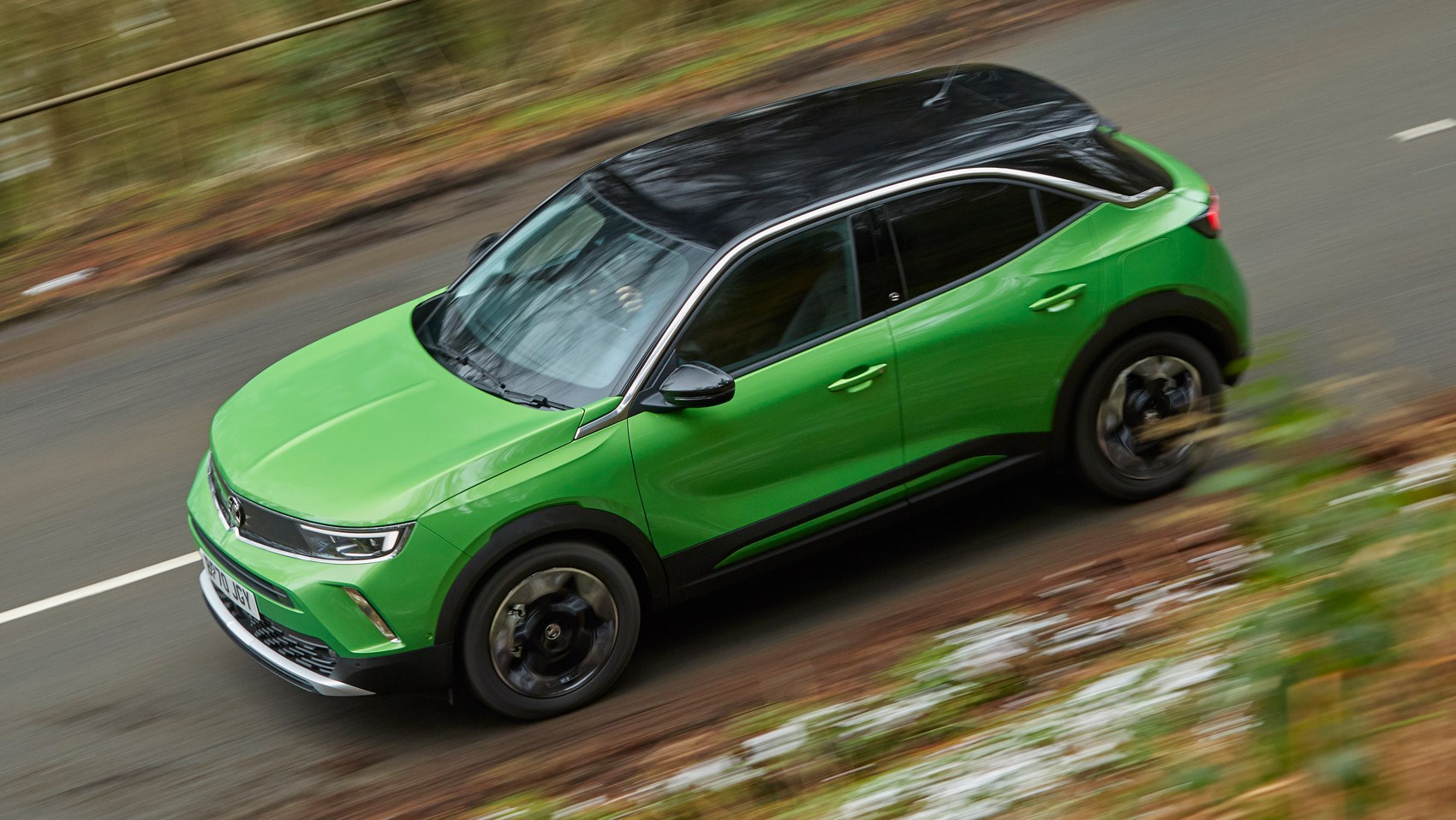
Opel/Vauxhall engineers have also clearly tweaked the e-CMP platform and the Mokka’s extensive use of PSA-based controls to their own specifications. The steering isn’t arcade racing game light – like it is in the e-2008 – with a respectable weighting up of the wheel when turning more than a quarter lock and amicable body control. And PSA’s notoriously spongey brake pedal is nowhere to be seen – the Mokka e’s is progressive and bites early. A tidy handler all-round.
Vauxhall Mokka e: verdict
A design revolution outside and an attractive proposition now, too. Granted, it’s not the most practical of small crossovers but, if you’re after a stylish electric runabout for you and your small family, you can now look beyond just Peugeot’s e-2008.
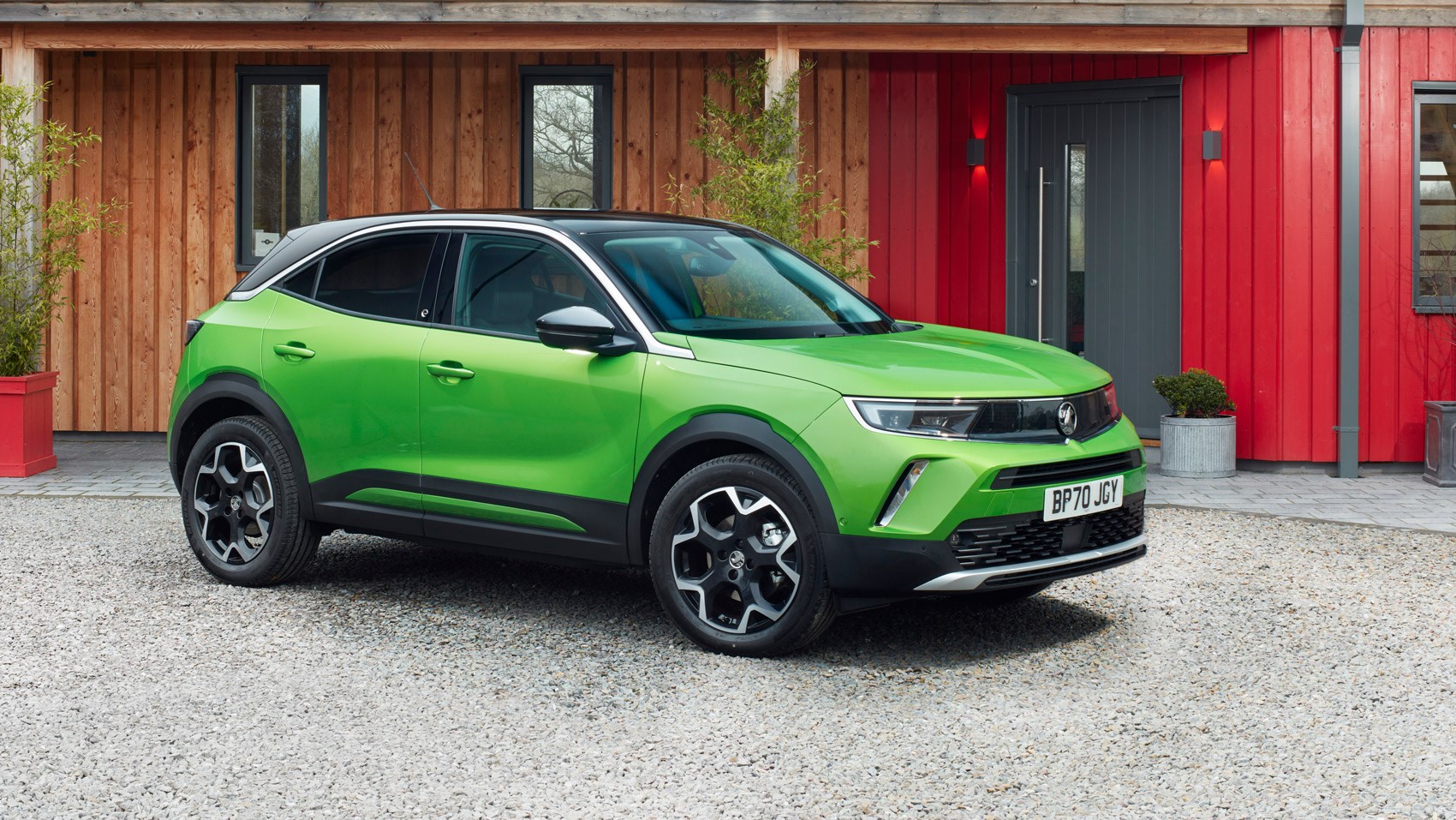
Read more Vauxhall reviews here